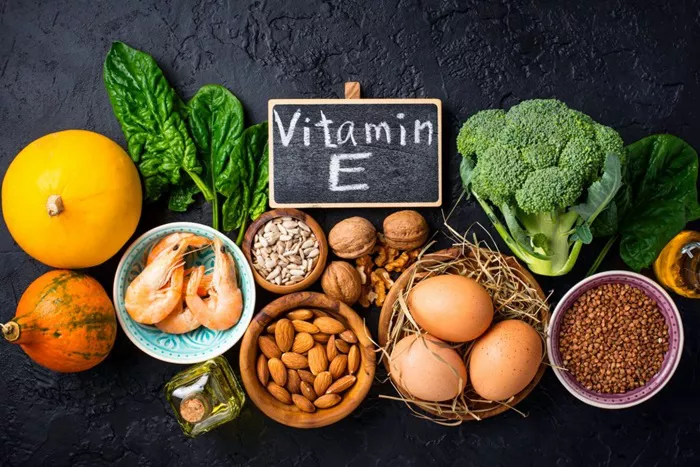Nutrition and diet are terms often used interchangeably, yet they represent distinct concepts that play crucial roles in maintaining health and well-being. Understanding the differences between nutrition and diet can empower individuals to make informed choices about their food intake, leading to better overall health and longevity.
Defining Nutrition
Nutrition refers to the science that studies how food and drink affect our bodies, including the processes of absorption, assimilation, biosynthesis, catabolism, and excretion. It encompasses the various nutrients that are essential for human life and how they interact within the body to promote growth, repair, and overall functioning.
Macronutrients and Micronutrients
Nutrition is categorized into macronutrients and micronutrients. Macronutrients include carbohydrates, proteins, and fats, which provide the energy required for daily activities. Micronutrients, such as vitamins and minerals, are needed in smaller quantities but are vital for various bodily functions, including immune response, bone health, and cellular repair.
The Role of Water
Water is often overlooked in discussions about nutrition, yet it is essential for life. It acts as a medium for biochemical reactions, helps regulate body temperature, and is crucial for the transportation of nutrients and waste products in and out of cells.
Nutritional Needs
Nutritional needs vary depending on age, gender, health status, and lifestyle. For example, athletes may require higher protein intake for muscle repair, while pregnant women need more folic acid to support fetal development. Nutrition also addresses deficiencies that can lead to various health issues, such as scurvy from a lack of vitamin C or osteoporosis from insufficient calcium.
Nutrition and Chronic Diseases
Good nutrition is essential for the prevention of chronic diseases. A balanced intake of nutrients helps maintain a healthy weight, supports immune function, and reduces the risk of conditions such as diabetes, heart disease, and certain cancers.
Understanding Diet
Diet refers to the sum of food consumed by an individual or a group. It includes everything from the types of food eaten to the timing and portion sizes. A diet is not just about weight loss or gain; it encompasses all the dietary habits and choices a person makes, which can be influenced by cultural, social, economic, and personal factors.
Types of Diets
There are numerous types of diets, each with specific purposes and guidelines. Some of the most common include:
Balanced Diet: A diet that includes a variety of foods in the right proportions to provide the necessary nutrients.
Vegetarian Diet: A diet that excludes meat but may include other animal products like dairy and eggs.
Vegan Diet: A diet that excludes all animal products.
Ketogenic Diet: A high-fat, low-carbohydrate diet designed to promote fat burning.
Mediterranean Diet: A diet based on the traditional eating patterns of countries bordering the Mediterranean Sea, emphasizing fruits, vegetables, whole grains, and healthy fats.
Cultural and Social Influences on Diet
Diet is often shaped by cultural and social factors. In some cultures, certain foods are avoided due to religious beliefs, while in others, particular foods are celebrated and consumed during specific rituals or ceremonies. Social settings, such as family gatherings or work environments, also influence dietary choices.
Dietary Patterns and Health
The pattern of eating—what is consumed, how much, and how often—can significantly impact health. Diets rich in processed foods, sugar, and unhealthy fats can lead to obesity, heart disease, and other health problems. Conversely, diets rich in fruits, vegetables, lean proteins, and whole grains can promote good health and longevity.
Diet vs. Fad Diets
It’s essential to distinguish between a well-planned diet and fad diets. Fad diets often promise quick weight loss and are characterized by extreme restriction of certain food groups or nutrients. While they may produce short-term results, they are not sustainable and can lead to nutritional deficiencies and other health issues.
See Also: What Foods Are High In Vitamin D?
Key Differences Between Nutrition and Diet
Scope and Focus
Nutrition is a broad field that covers the science of food and how it affects the body. It involves understanding the nutritional value of different foods, how the body uses nutrients, and how nutrition impacts health and disease. Diet, on the other hand, is more about the practical application of this knowledge in terms of what we eat.
Objective vs. Subjective
Nutrition is an objective science based on research and evidence. It looks at the specific nutrients in foods and how they function within the body. Diet, however, is more subjective and can vary widely between individuals based on preferences, lifestyle, culture, and personal goals.
Nutritional Guidelines vs. Dietary Choices
Nutritional guidelines are often set by health organizations based on scientific evidence to promote public health. These guidelines suggest the intake of specific nutrients, such as recommended daily allowances (RDAs) for vitamins and minerals. Dietary choices, however, are individual decisions influenced by personal taste, cultural practices, and lifestyle.
Impact on Health
While nutrition directly impacts health by ensuring the body gets the necessary nutrients, diet indirectly impacts health by influencing nutritional status. A person’s diet can either help meet their nutritional needs or contribute to nutritional deficiencies and related health issues.
The Interplay Between Nutrition and Diet
Diet as a Means to Achieve Nutritional Goals
Diet is the vehicle through which nutrition is achieved. For example, if a person needs to increase their intake of vitamin D, their diet may include more fortified foods or supplements. Similarly, if someone is trying to manage their weight, their diet will be adjusted to meet specific calorie and nutrient targets.
Personalized Nutrition
The concept of personalized nutrition is gaining traction, where diets are tailored to an individual’s genetic makeup, lifestyle, and health status. This approach recognizes that a one-size-fits-all diet may not be effective for everyone. Personalized nutrition plans consider how an individual metabolizes nutrients, their risk of developing certain diseases, and their personal health goals.
The Role of Dietitians and Nutritionists
Dietitians and nutritionists play a critical role in helping people navigate the complexities of nutrition and diet. They can assess an individual’s nutritional needs, create customized diet plans, and provide guidance on making healthier food choices. While both professions focus on food and health, dietitians often have more clinical training and may work in healthcare settings, whereas nutritionists might work in wellness or community settings.
Dietary Supplements
In some cases, diet alone may not meet all nutritional needs, leading to the use of dietary supplements. These supplements can provide essential vitamins, minerals, or other nutrients that are lacking in a person’s diet. However, it’s important to note that supplements should complement, not replace, a balanced diet.
Challenges and Considerations in Nutrition and Diet
Nutritional Misconceptions
There are many misconceptions about nutrition, such as the belief that all fats are bad or that carbohydrates should be entirely avoided. These misconceptions can lead to poor dietary choices and nutritional imbalances. Education and awareness are key to helping people make informed decisions about their diet.
Access to Healthy Foods
Not everyone has equal access to healthy foods, which can affect their nutrition and diet. Socioeconomic factors, geographic location, and food deserts (areas with limited access to affordable and nutritious food) can all influence dietary habits. Ensuring access to healthy foods is essential for promoting good nutrition across populations.
The Impact of Modern Diets
Modern diets, particularly in Western countries, have shifted towards higher consumption of processed foods, sugars, and unhealthy fats. This shift has contributed to the rise in obesity, diabetes, and other chronic diseases. Efforts to improve public health must address these dietary trends and promote a return to more balanced, whole-food-based diets.
Environmental and Ethical Considerations
Dietary choices also have environmental and ethical implications. The production of certain foods, particularly meat, has a significant environmental impact, contributing to greenhouse gas emissions, deforestation, and water use. Additionally, ethical considerations, such as animal welfare and sustainable farming practices, are becoming increasingly important in dietary decisions.
Balancing Nutrition and Diet for Optimal Health
Creating a Balanced Diet
To achieve optimal health, it’s important to create a balanced diet that meets nutritional needs. This includes consuming a variety of foods from different food groups, such as fruits, vegetables, whole grains, lean proteins, and healthy fats. A balanced diet ensures that the body receives all the necessary nutrients to function properly.
Mindful Eating
Mindful eating involves paying attention to what you eat, savoring the flavors, and recognizing hunger and fullness cues. This practice can help prevent overeating and promote a healthier relationship with food. Mindful eating also encourages the consumption of nutritious foods that nourish the body and support overall well-being.
Regular Monitoring and Adjustments
It’s important to regularly monitor dietary habits and make adjustments as needed. As life circumstances change—such as aging, pregnancy, or the development of health conditions—nutritional needs may also change. Regular check-ins with a healthcare provider or nutritionist can help ensure that your diet continues to meet your nutritional needs.
Integrating Physical Activity
Diet and nutrition are closely linked to physical activity. Regular exercise helps to maintain a healthy weight, improve cardiovascular health, and enhance overall well-being. A diet that supports an active lifestyle includes adequate energy intake, sufficient protein for muscle repair, and plenty of fluids to stay hydrated.
Conclusion
While nutrition and diet are closely related, they are distinct concepts that together form the foundation of good health. Nutrition focuses on the science of nutrients and how they impact the body, while diet refers to the practical application of this knowledge through food choices and eating habits. Understanding the difference between nutrition and diet is crucial for making informed decisions that support long-term health and well-being. In a world where dietary choices are influenced by many factors, from culture to convenience, it’s important to prioritize nutrition in creating a diet that not only satisfies but also sustains. By balancing both nutrition and diet, individuals can achieve optimal health, prevent chronic diseases, and enjoy a higher quality of life.
[inline_related_posts title=”You Might Be Interested In” title_align=”left” style=”list” number=”6″ align=”none” ids=”11682,11536,11396″ by=”categories” orderby=”rand” order=”DESC” hide_thumb=”no” thumb_right=”no” views=”no” date=”yes” grid_columns=”2″ post_type=”” tax=””]

































